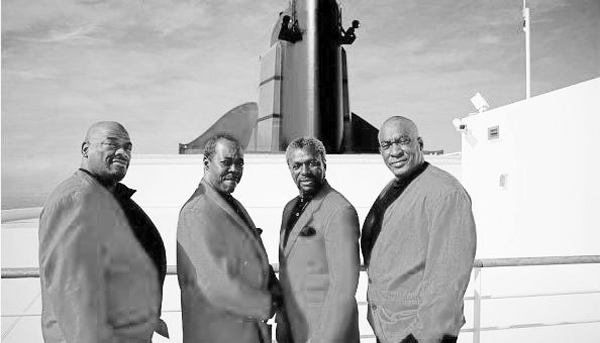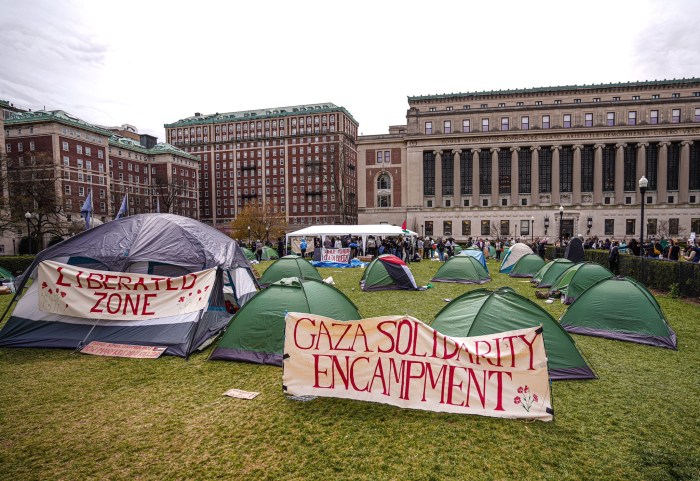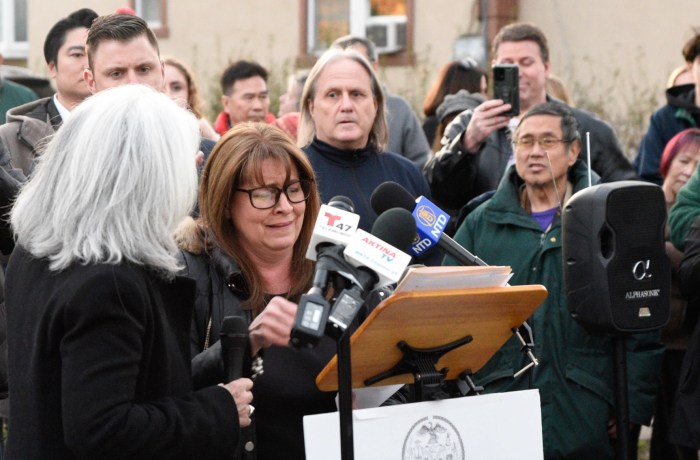
Serenading summer tourists with R&B tunes, doo-wop groups have animated the street corners at Bleecker and Leroy Sts. with their a cappella stylings for decades. But after years of oldies sets and soul music performances, some residents and local businesses want the noisy singers gone.
“I can hear these guys right outside my window, and after 15 years, I would like to shoot them all dead,” Rosemary Bella, a fed-up Bleecker St. resident, angrily told the New York Post, earlier this month.
Doo-wop was the hot topic at the Sixth Precinct Community Council meeting on Wed., May 30, when community members expressed their anger at the singing groups and requested that the city put an end to their alfresco gigs. The performances, residents and merchants said, are too loud and last for hours — from early afternoon until late night, peaking on Fridays and Saturdays.
“They are ceaseless and are very audible for blocks in all directions by any resident with an open window on any upper floor, with no choice in the matter other than to close their windows,” said Matt Umanov, owner of the eponymous vintage guitar shop on Bleecker St. since 1965.
“They may have the right to sing on the street,” Umanov said, “but not to the point where they are a major and persistent intrusion on quality of life of residents and local merchants.”
Dorothy Green, another resident, agreed that the main problem is “the persistence and the consistence” of the a cappella performances. Green, who heads the Central Village Block Association, compiled a rough back-of-the-envelope calculation of the hours that doo-wop groups perform and presented it to the police.
“It’s about 700 hours of doo-wop a year — and it’s not really well sung, either,” she said. “The sound travels forcefully inside, and when it intrudes into the living room it becomes a problem.”
Yet, noise isn’t the only issue. Bleecker St.’s narrow sidewalks are constantly blocked by tourists lingering to listen to the doo-wop tunes, critics say, adding that a lot of trash accumulates on the sidewalks after their performances.
“This is a safety issue as well as a constant annoyance,” Umanov stated.
Complaints about the doo-wop singers have been voiced directly to the street singers for years, without result, residents and merchants say. In one case, they say, the doo-wop singers reportedly threatened a resident who asked them to move.
After the issue was brought up forcefully at last month’s Community Council meeting, police have started to take action to address try to address the situation.
“The doo-wop singers who frequent the West Village have become a quality of life concern here in the command,” said Deputy Inspector Brandon del Pozo, the Sixth Precinct’s commanding officer. “While doo-wop is not a crime, a minute or two for a fond memory for tourists is a year of aggravation for residents.”
Following a meeting at the precinct on Sun., June 3, the four members of the group Spank — one of the doo-wop groups performing in the area — have agreed to limit their a cappella performances to 20 to 25 minutes, changing locations after each set. In addition, the quartet offered to “give Bleecker St. a rest” and move to alternative spots with fewer residential buildings, such as Washington Square, Father Demo Square and other parks and open areas.
These steps, del Pozo noted, represent a compromise between the singers’ right to perform and the right of the community to be free from “unreasonable noise” in their homes and businesses.
“To make one thing clear: There are three or so different groups, but the ones I spoke with said they would get the message out,” del Pozo said. “They all have an interest in being able to continue singing in the Village, and they can only protect this interest by not inspiring the anger and frustration of its residents.”
In addition, the doo-wop singers will attend the next Community Council meeting on Wed., June 27, to listen to the community’s concerns and address them directly.
People’s reaction to this solution were mixed.
“I happened to walk past Washington Square Park this Sunday and the doo-wop singers were under the arch,” said Green, adding she and other residents are hoping the groups will continue to honor the arrangement made with the police.
“Maybe people would wish they wouldn’t be there at all,” she added. “But any relief from them is very welcome.”
Amy Scherber, the owner of Amy’s Bread, said she’s happy with the arrangement reached between the police and the singers. Scherber sent police a letter about the inconveniences caused by Spank performing right in front her bakery at 250 Bleecker St.
“They were good, though,” she admitted of the quartet.
Yet, some residents aren’t as tolerant and wish the police had done more to resolve this and other noise issues in the neighborhood. From the sound of it, some want a doo-wop-free zone on Bleecker St.
“After all the ceaseless period of time the singers have spent here over the past few years, upsetting residents and causing the sidewalk to be blocked, they’ve more than used up their welcome and allotted amount of time here, for decades to come,” griped Umanov, who also lives in the neighborhood.
In addition to the doo-woppers, he noted, the list of local annoyances include other street musicians, loud music from cars stuck in traffic, roaring motorcycles at night and the noise that surrounds bars every night.
“Having this constant sound additionally assaulting our homes during the day on the only two days of the week that most of us have to relax is beyond irritating,” Umanov said. “It is not acceptable.”

















